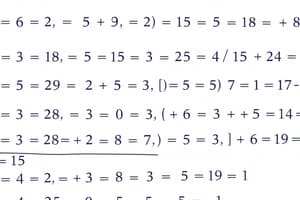Podcast
Questions and Answers
What do legal rules establish?
What do legal rules establish?
- Procedures for geometric transformations
- Guidelines for mathematical calculations
- Standards for social behavior
- Boundaries within which society functions (correct)
Which of the following is NOT an example of social norms or etiquette?
Which of the following is NOT an example of social norms or etiquette?
- Politeness during meals
- Appropriate attire for certain occasions
- Order of operations in mathematics (correct)
- Speaking manners when addressing others
In mathematics, what do rules primarily guide?
In mathematics, what do rules primarily guide?
- Legal procedures for court cases
- Geometric transformations on shapes (correct)
- Unwritten customs in daily life
- Traffic regulations for safe driving
What type of rules dictate the sequence of operations in arithmetic expressions?
What type of rules dictate the sequence of operations in arithmetic expressions?
Which area of life is mainly focused on shared customs contributing to social cohesion?
Which area of life is mainly focused on shared customs contributing to social cohesion?
Study Notes
Rule
The word 'rule' can refer to various concepts depending on its context. In general, it refers to something that is used to govern behavior or direct actions; it may serve as an authority, standard, principle, code of conduct, procedure, etc. Here are some specific meanings of the term based on different areas of life:
Mathematical Rules
In mathematics, rules are statements that guide calculations and problem solving. For instance, the order of operations dictates how arithmetic expressions must be evaluated using parentheses or brackets. Similarly, geometric transformations like translation, rotation, reflection, dilation, and shear have their own set of rules governing how they operate on shapes.
Legal Rules
Legal rules establish boundaries within which society functions. They range from statutes passed by legislatures to court decisions that interpret laws enacted by lawmakers. An example could be traffic regulations set forth by local authorities to ensure safe driving practices among motorists.
Social Norms & Etiquette
Social norms and etiquette involve unwritten customs, expectations, and behaviors that contribute to social cohesion. These often evolve from shared experiences and are reinforced through repeated interactions. Examples might include politeness during meals, appropriate attire for certain occasions, or speaking manners when addressing others.
Educational Standards
Educational standards define what students need to know and be able to do at each grade level across multiple subjects. Each state sets academic goals known as learning objectives, commonly referred to as standards, that educators use to plan instruction.
Computer Programming
In computer programming, there are numerous rules that coders follow to create functional programs. These include syntax rules (e.g., proper indentation), coding conventions (e.g., naming variables consistently), debugging techniques (fixing errors), and algorithmic thinking (designing efficient solutions).
Regardless of context, rules play a crucial role in organizing human activity and ensuring consistency and predictability in our daily lives.
Studying That Suits You
Use AI to generate personalized quizzes and flashcards to suit your learning preferences.
Description
Explore the concept of 'rule' in different areas such as mathematics, law, social norms, education standards, and computer programming. Discover how rules govern behaviors, calculations, legal systems, social interactions, educational requirements, and programming practices.



